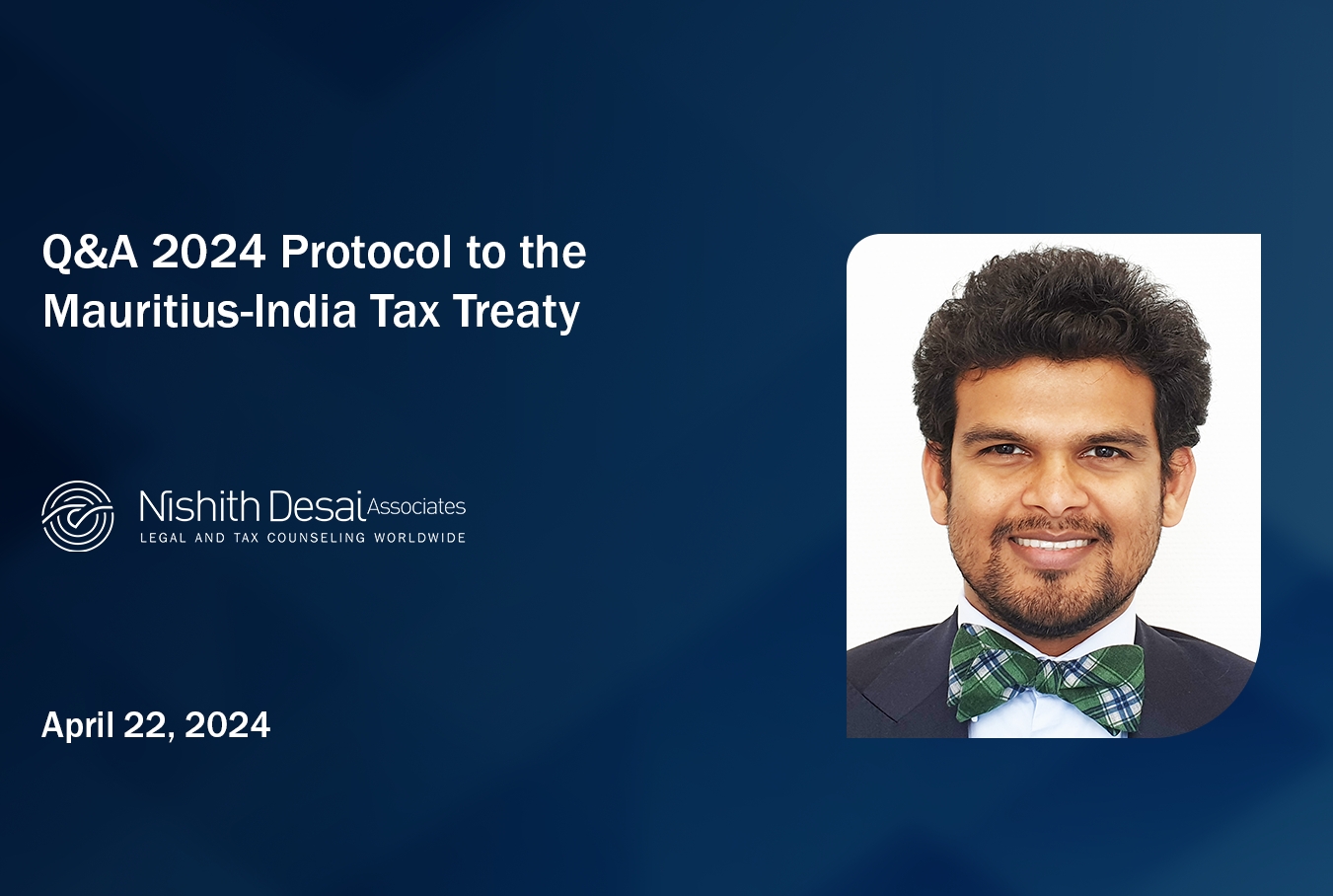Capital Markets Hotline: Changing Role Dynamics of Parties to INVIT/REITs – SEBI’s Board Meeting
Posted by By nishithadmin at 6 July, at 14 : 41 PM Print
Warning: count(): Parameter must be an array or an object that implements Countable in /web/qlc/nishith.tv/htdocs/wp-content/themes/Video/single_blog.php on line 46
Warning: count(): Parameter must be an array or an object that implements Countable in /web/qlc/nishith.tv/htdocs/wp-content/themes/Video/single_blog.php on line 52
CHANGING ROLE DYNAMICS OF PARTIES TO INVIT/REITS – SEBI’S BOARD MEETING
Infrastructure Investment Trusts (‘InvITs’) and Real Estate Investment Trust (‘REIT’) are investment pooling vehicles that invest in revenue generating real estate assets and infrastructure assets respectively. The foundation for InvITs and REITs in India was laid down by the securities regulator – Securities and Exchange Board of India (‘SEBI’) in 2014, by notifying the SEBI (Infrastructure Investment Trust) Regulations, 2014 (‘InvIT Regulations’) and SEBI (Real Estate Investment Trust) Regulations, 2014 (‘REIT Regulations’). At the beginning of 2023, the Indian InvIT and REIT market was flourishing, with a total of 19 InvITs and 4 REITs registered with SEBI corresponding to a total asset under management of INR 3.5 trillion.1
With the growing popularity of InvITs and REITs as a preferred vehicle for investments in infrastructure and real estate sector, the regulatory regime around InvITs and REITs has also seen a dynamic overhaul by SEBI. SEBI in its board meeting dated June 28, 2023 (‘Board Meeting’) has approved certain significant amendments to the regulatory regime around InvITs and REITs. These amendments bring a far-reaching change to the dynamics of the parties to InvITs/REITs, specifically the Sponsors, Unitholders, and Investment Manager/Manager. The change is not only limited to the roles played by these parties vis-à-vis the InvITs/REITs, but also include changes to inter-se obligations. In this article, we have analyzed the amendments approved by SEBI in relation to InvITs/REITs in its Board Meeting and the impact of the same on the market. However, one key disclaimer to note is that these amendments have been approved by SEBI, but the actual language for these amendments has not been released. Therefore, the analysis provided herein is subject to the actual language that SEBI uses for implementation of the amendments.
INTRODUCTION OF BOARD NOMINATION RIGHTS AND STEWARD SHIP CODE TO UNITHOLDERS OF INVITS/REITS
The first amendment in relation to InvITs/REITs that has been approved by SEBI in its Board Meeting is in relation to the introduction of nomination rights at the board of the Investment Manager/Manager for unitholders of InvITs/REITs, respectively. The proposal for this amendment was first presented for public consultation vide consultation paper titled “Consultation Paper on Special Rights to Unitholders and Role of Sponsor in REITs & InvITs” dated May 16, 2023 (“First Consultation Paper”). Pursuant to the First Consultation Paper and the Board Meeting, SEBI pointed out the growing interests of retail investors in InvITs and REITs. Additionally, SEBI pointed out that the decisions of the Investment Manager/Manager of an InvIT/REIT, respectively can have long term material implications on the returns to unitholders and hence, it is important for unitholders to have a say in the decisions made by the Investment Manager/Manager of an InvIT/REIT, respectively.
Current Regulatory Framework:
The InvIT Regulations2 and REIT Regulations3 do not allow any unitholder of an InvIT or REIT, respectively to enjoy any superior voting rights or any other rights over another unitholder. Hence, the current regulatory framework did not permit large institutional investors to have board nomination rights in the investment manager of an InvIT/REIT, solely on account of their unit holding.
Proposal of the First Consultation Paper:
- Board Nomination Rights: As per the First Consultation Paper, SEBI proposed to amend the InvIT Regulations and REIT Regulations to allow any unitholder holding a minimum 10% of unitholding in such InvIT/REIT to appoint 1 (one) director on the board of the Investment Manager/Manager for every 10% of unitholding held by such unitholder.
- Constitution of Unitholders’ Council: SEBI proposed to introduce the concept of Unitholders’ Council at the Investment Manager/Manager level where any unitholder holding a minimum 10% of unitholding in such InvIT/REIT is entitled to nominate 1 (one) member to such Unitholders’ Council. Additionally, such Unitholders’ Council shall constitute of at least 3 (three) members and such member to have 1 (one) vote for every 10% unitholding held by the unitholder nominating the member to the Unitholders’ Council. Lastly, all the decisions of the Unitholders’ Council would be taken by a simple majority of the members present and voting.
- Introduction of Stewardship Code: Pursuant to the First Consultation Paper, SEBI proposed to introduce the principles of Stewardship Code (which has already been introduced to mutual funds and all categories of Alternative Investment Funds) on the unitholders nominating a (i) director on the board of the Investment Manager/Manager or (ii) member on the Unitholders’ Council. The following are the proposals proposed by SEBI pursuant to the First Consultation Paper in relation to the implementation of Stewardship Code on the aforementioned unitholders:
a) Must act in the best interests of the InvIT/REIT and on its unitholders as a whole;
b) Formulating a comprehensive policy which inter alia covers the following (A) discharge of stewardship responsibilities, including reviewing and updating such policies periodically, (B) managing conflicts of interest in fulfilling the stewardship responsibilities, (C) intervention in the InvIT/REIT and their holding companies and special purpose vehicles, (D) collaboration with large institutional investors of the InvIT/REIT in order to preserve the interests of the other unitholders of the InvIT/REIT, and (E) voting at the InvIT.
c) Periodic monitoring of the InvIT/REIT and their investee entities (holding companies and special purpose vehicles).
Amendment approved in the Board Meeting: The Board Meeting minutes released by SEBI approved the amendment to the InvIT Regulations and REIT Regulations to provide for any unitholder holding a minimum 10% of unitholding in such InvIT/REIT individually or collectively to appoint a director on the board of the Investment Manager/Manager of the InvIT/REIT, respectively. Additionally, SEBI in its Board Meeting has addressed concerns surrounding circumstances where any unitholder holds less than 10% unitholding in the InvIT/REIT. In the aforementioned situation, such unitholder is allowed to combine their unitholding with another unitholder (such unitholders being referred to as “Combined Unitholders”) such that the aggregate of the unitholding of the above-mentioned unitholders in the InvIT/REIT reaches a minimum of 10% unitholding. Subsequently, the Combined Unitholders can collectively nominate a director on the board of the Investment Manager/Manager. SEBI has also approved the applicability of the principles of Stewardship Code on such unitholders holding 10% or more of the unitholding in the InvIT/REIT.
One key point to note is that while the Proposal as per the First Consultation Paper provided for the construct of a Unitholder’s Council, the same has not been adopted in the proposal that was accepted by SEBI in its Board Meeting. SEBI is yet to come up with specific language on this amendment. Post the exact language is notified by SEBI through a gazette notification, it can be assessed if there are any deviations from the proposal of the First Consultation Paper.
REVISION OF MINIMUM UNITHOLDING REQUIREMENT OF SPONSOR:
Another amendment that has been approved by SEBI in its Board Meeting is in relation to changing the requirement of minimum unitholding by Sponsors. The proposal for this amendment was first presented for public consultation vide consultation paper titled “Consultation Paper on Holding of Sponsor in REITs and InvITs” dated February 23, 2023 (‘Second Consultation Paper’). As per the proposal in the Second Consultation Paper, SEBI pointed out that Sponsors play a key role in setting up the InvIT/REIT and play a key role in the decision-making capabilities that might have long term impacts. Even though the REIT Regulations and the InvIT Regulations require a minimum unitholding of the Sponsor for a period of 3 (three) years from the date of listing, it was observed that there were instances where post the 3 (three) year period, Sponsors would exit entirely thereby leaving the impact of their decisions to be borne by the remaining investors and the Investment Manager/Manager.
Current Minimum Unitholding Requirement of Sponsors for REITs and InvITs: Initially when the InvIT Regulations were notified, the Sponsor was required to hold not less than 25% of the total units of the InvIT for a period of not less than 3 (three) years from the date of listing of units issued or initial offer.4 This was later amended in 2016 to provide that the Sponsor shall hold not less than 15% of the total units for a period of not less than 3 (three) years from the date of listing of units issued or initial offer.5 After 3 (three) years, there was no mandatory unit holding requirement for a Sponsor.
Similarly for REIT Regulations, at the time of notification, a Sponsor was required to hold not less than 25% of the total units of the REITs for a period of not less than 3 (three) years from the date of listing of units issued or initial offer. However, post the three years period, the Sponsor and Sponsor group were required to hold at least 15% of the outstanding units (with each Sponsor holding not less than 5%) at all times.6 This was a key difference between InvIT Regulations and REIT Regulations at the time of notification in terms of minimum Sponsor unitholding. However, vide an amendment to REIT Regulations in 2020 and then 2022, the REIT Regulations were streamlined with InvIT Regulations, with the Sponsor being required to hold 15% of the total units for a period of not less than 3 three years from the date of listing of units issued or initial offer and no obligations after three years.7
Proposal of the Second Consultation Paper: As per the Second Consultation Paper, SEBI proposed that the requirement of minimum unitholding of the Sponsor be staggered to ensure that a Sponsor has its skin in the game for the lifespan of the InvIT/REIT. As per the Second Consultation Paper, SEBI has proposed the following staggered minimum Sponsor unitholding:
| S. No | Time Period | Required Minimum Unitholding |
| 1. | Up to 3 years from the date of listing | 15% of total unit capital |
| 2. | 3 to 5 years from the date of listing | 5% of total unit capital |
| 3. | 5 to 10 years from the date of listing | 3% of total unit capital |
| 4. | 10 to 20 years from the date of listing | 2% of the total unit capital |
| 5. | Post 20 years from the date of listing | 1% of the total unit capital |
Amendment Approved in the Board Meeting: The Board Meeting minutes released by SEBI approve the amendment to REIT Regulations and InvIT Regulations to provide for the following:
(a) During the life of the investment vehicle (InvIT/REIT), the Sponsor shall be required to hold a certain minimum unitholding on a reducing scale for the entire life of the InvIT/REIT.
(b) The mandatory unitholding of the Sponsor shall always be locked-in and be unencumbered.
SEBI is yet to come up with specific language and specific quantum for minimum Sponsor Unitholding on this amendment. Post the exact language is notified by SEBI through a gazette notification, it can be assessed if there are any deviations from the proposal of the Second Consultation Paper.
INTRODUCTION OF SELF-SPONSORED INVESTMENT MANAGERS/MANAGERS
Generally, as a market practice it was observed that most of the Sponsors would hold certain shareholding or control over the Investment Managers/Managers of InvIT/REITs. This would mean that for a Sponsor to exit from an InvIT/REIT, it would have to divest as a Sponsor and also from the Investment Manager/Managers. Now that SEBI was ensuring that Sponsors have a skin in the game till the life span of an InvIT/REIT, SEBI also created a route for Sponsors to exit from the InvIT/REIT by passing on its obligations to a Self-Sponsored Investment Managers/Managers. The Board Meeting mentions that there was a need to create an opportunity for mature and independent, professionally managed Investment Managers/Managers to emerge and provide an additional exit option for Sponsors of REITs and InvITs. For the purposes of the same, SEBI in its Board Meeting approved a proposal to introduce the concept of Self-Sponsored Investment Managers/Managers in the InvIT/REIT ecosystems.
Self-Sponsored Investment Managers/Managers would take on the roles and responsibilities of the Sponsors in an InvIT/REIT. However, for a Self-Sponsored Investment Manager/Managers to be able to take up the roles and responsibilities of a Sponsor, the following requirements must be met:
(a) The InvIT/REIT shall have been listed for at least 5 years
(b) At least one of the Sponsor proposing to disassociate from the InvIT/REIT shall have been a Sponsor of the InvIT/REIT for a minimum of 5 years
(c) Post the Self-Sponsored Investment Manager/Managers taking up, the minimum unitholding requirements of the Sponsor shall be complied with by the Investment Manager/Manager, shareholders of the Investment Manager/Manager.
(d) The existing Sponsor or its associate shall not own or control the Self-Sponsored Investment Manager/Manager, on or after the date the Self-Sponsored Investment Manager/Manager taking up the roles and responsibilities
The proposal approved in the Board Meeting sets out the broad terms of this concept. Based on the actual amendment that SEBI notifies, there might be additional requirements for a Self-Sponsored Investment Manager/Manager.
CONCLUSION
The amendments approved by SEBI in the Board Meeting bring the far-reaching change to the dynamics of the roles played by key parties to an InvIT/REIT – Sponsors, Investment Managers/Managers and unitholders. These changes are aimed at better corporate governance and a smooth operation of the InvIT/REIT operation ecosystem. However certain proposals such as the application of the stewardship code may impinge on the freedom of parties in a manner that was not foreseeable at the time the relevant investments had been made. Once the actual language for these approved amendments are notified by SEBI, it will be interesting to see if there are any deviations from the proposals made by First Consultation Paper and Second Consultation Paper based on the comments received by the stakeholders during the consultation stage, and to analyze the granularities of the applicable provisions.
– Anurag Shah, Anirudh Arjun & Ratnadeep Roychowdhury
You can direct your queries or comments to the authors.
1Economic Times, January 02, 2023, https://energy. economictime s.indiatime s.com/new s/renew able/ emergin g-tren ds-in- invit s-ami dst-fa vourabl e-regul ations- in-ind ia/966 84840
2Regulation 4(2)(h), SEBI (Infrastructure Investment Trusts) Regulations, 2014
3Regulation 4(2)(g), SEBI (Real Estate Investment Trusts) Regulations, 2014
4Regulation 12(3) of the SEBI (Infrastructure Investment Trust) Regulations, 2014
5Securities and Exchange Board of India (Infrastructure Investment Trusts) (Amendment) Regulations, 2016
6Regulation 11(3) of SEBI (Infrastructure Investment Trusts) Regulations, 2014
7Securities and Exchange Board of India (Real Estate Investment Trusts) (Amendment) Regulations, 2022 and SEBI (Real Estate Investment Trusts) (Second Amendment) Regulations, 2020
Chambers and Partners Asia Pacific 2023: Top Tier for Tax, TMT, Employment, Life Sciences, Dispute Resolution, FinTech Legal
Legal 500 Asia Pacific 2023: Top Tier for Tax, TMT, Labour & Employment, Life Sciences & Healthcare, Dispute Resolution
Benchmark Litigation Asia Pacific 2023: Top Tier for Tax, Labour & Employment, International Arbitration
IFLR1000 2022: Top Tier for M&A and Private Equity
AsiaLaw Asia-Pacific 2022: Top Tier for Tax, TMT, Investment Funds, Private Equity, Labour and Employment, Dispute Resolution
FT Innovative Lawyers Asia Pacific 2019 Awards: NDA ranked 2nd in the Most Innovative Law Firm category (Asia-Pacific Headquartered)
RSG-Financial Times: India’s Most Innovative Law Firm 2019, 2017, 2016, 2015, 2014
DISCLAIMER
The contents of this hotline should not be construed as legal opinion. View detailed disclaimer.






